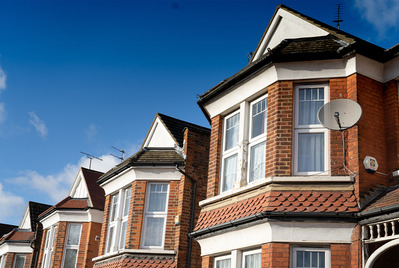
In January, the Housing Secretary announced that the Government is going to start acting on some of the Law Commission’s recommendations for reforming residential leasehold.
Leasehold has been in the spotlight since the White Paper, ‘Fixing our broken housing market’, was published in 2017. The Law Commission has done extensive work on the matter and last summer published its report: ‘Leasehold home ownership: buying your freehold or extending your lease’.
In the Government’s own words, the upcoming changes come as “part of the biggest reforms to English property law for 40 years, fundamentally making home ownership fairer and more secure.”
Although all this will take a while to implement, here’s five changes we are likely to see over the next few years:
1. Leaseholders will have the right to extend a lease up to 990 years, with zero ground rent
At the moment:
- Leaseholders of houses can only extend the lease once, with ground rent
- Flat owners can extend the lease at a zero ‘peppercorn’ ground rent, but usually only for 90 years
The new law will apply to all types of residential leasehold property, so that any homeowner who extends their lease will no longer pay any ground rent, effectively, the fee paid for the lease extension includes ‘buying out’ the current ground rent. The leaseholder can also extend to 990 years.
The Government is also going to bring forward legislation in the next session of Parliament, to set future ground rents to zero. As a result some new builds are already selling with zero ground rent and 990+ lease lengths.
2. No more ‘marriage value’
At the moment, part of the overall cost of extending a lease is ‘marriage value’. This is the increase in the property’s value following the extension, which must be shared equally between the leaseholder and the freeholder. For example, if a property with a short lease term remaining is currently worth £150,000 and extending the lease adds £20,000 to the value, the leaseholder must pay the freeholder £10,000.
Although this may be contested by freeholders, if it goes ahead, it’s great news for leaseholders, as it should make it much cheaper to either extend the lease or buy the freehold.
3. Fees for providing leasehold information to buyers to be capped at £200 + VAT
When a leasehold property is sold, landlords/freeholders or their managing agents have to produce a detailed information pack for the buyer. The cost of this is usually passed on to the leaseholder and, although it may only be a few hundred pounds, leaseholders in more expensive areas could find themselves being charged £750 or more, so more good news for those selling a leasehold in the future.
4. A new time limit of 15 days to provide leasehold information
Because there is a legal lease to be investigated, leasehold transactions tend to take longer and be more expensive to carry out than freehold ones. In an effort to speed up the process, the Government intends to make it a statutory requirement for landlords to provide leasehold information to their buyer within 15 working days.
5. A new ‘Commonhold Council’ to be established
‘Commonhold’ allows homeowners to jointly own the block or building, meaning residential premises are not under the control of a separate third-party freeholder. It’s a model that’s already popular around the world and means anyone who buys a flat or house truly owns it.
The plan is to a establish a partnership of leasehold groups, industry and government, which would work to prepare homeowners and the market for the take-up of the commonhold model.
Although more information on these proposals is required before any changes are implemented, things are certainly heading in the right direction. Property professionals are now calling on the Government for greater clarity on timescales, technical legal details and how the changes will work in practice.
If you have any other questions about leasehold, get in touch with your local Your Move branch and one of the team will be happy to help.
The Your Move Content Marketing Team



